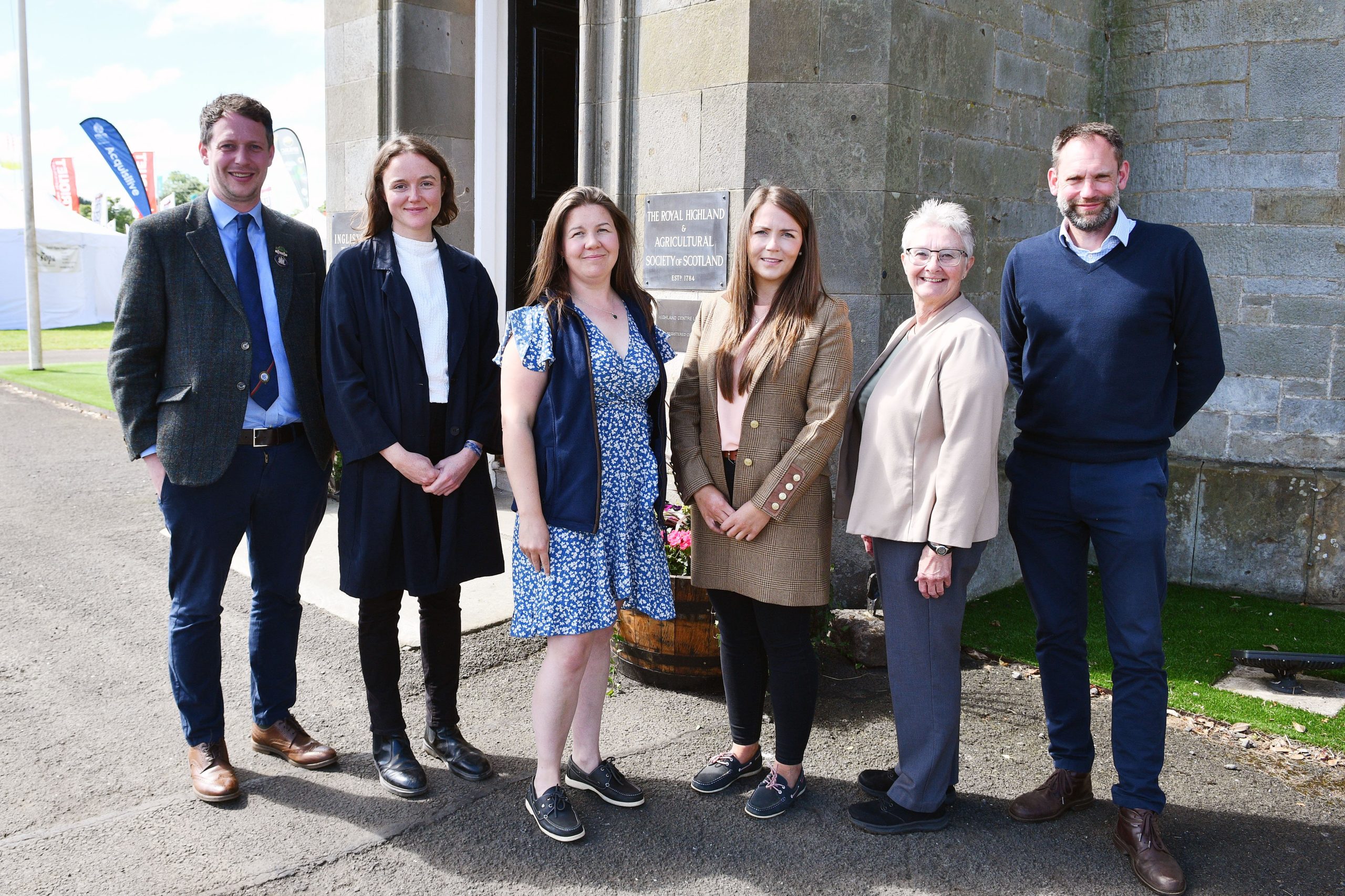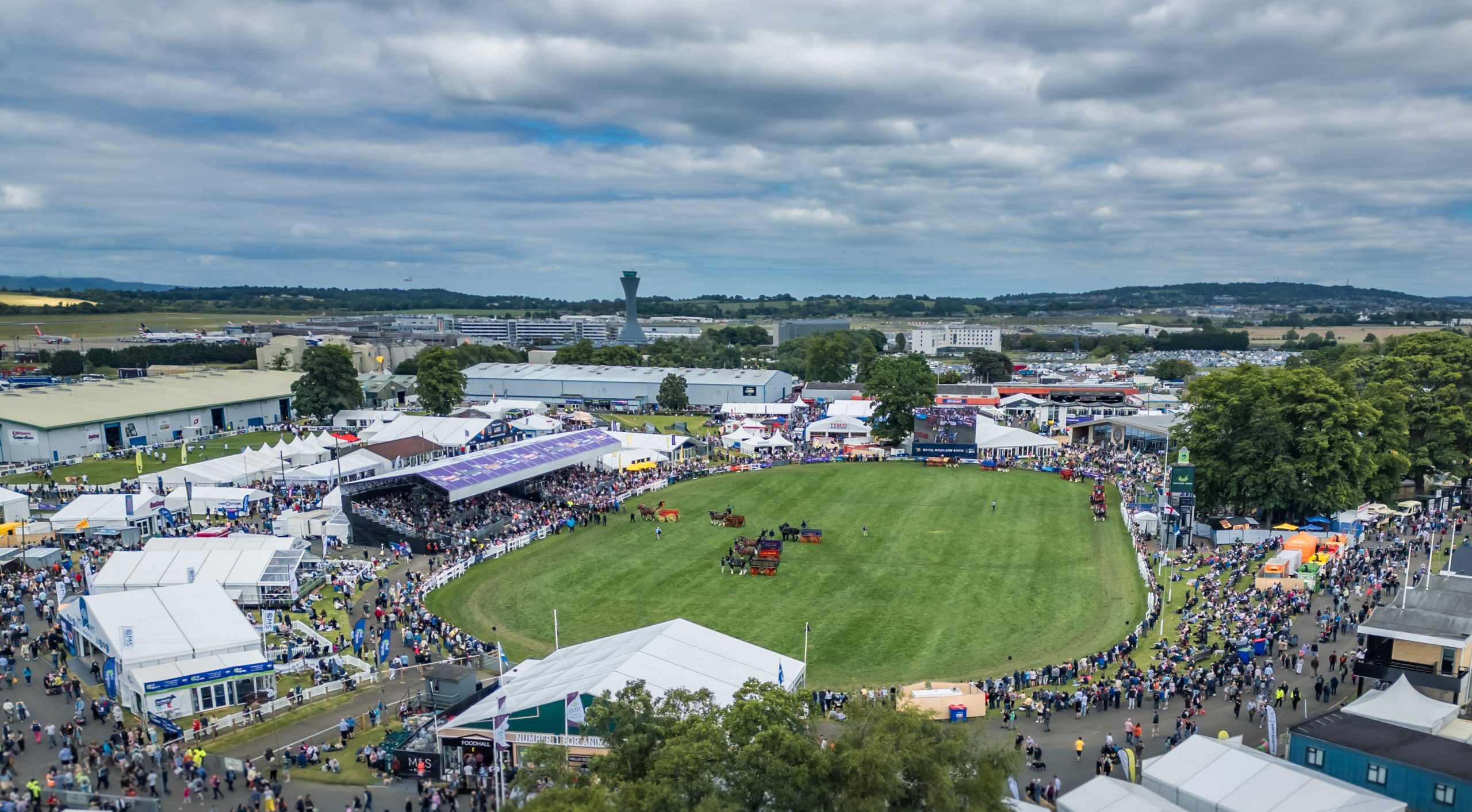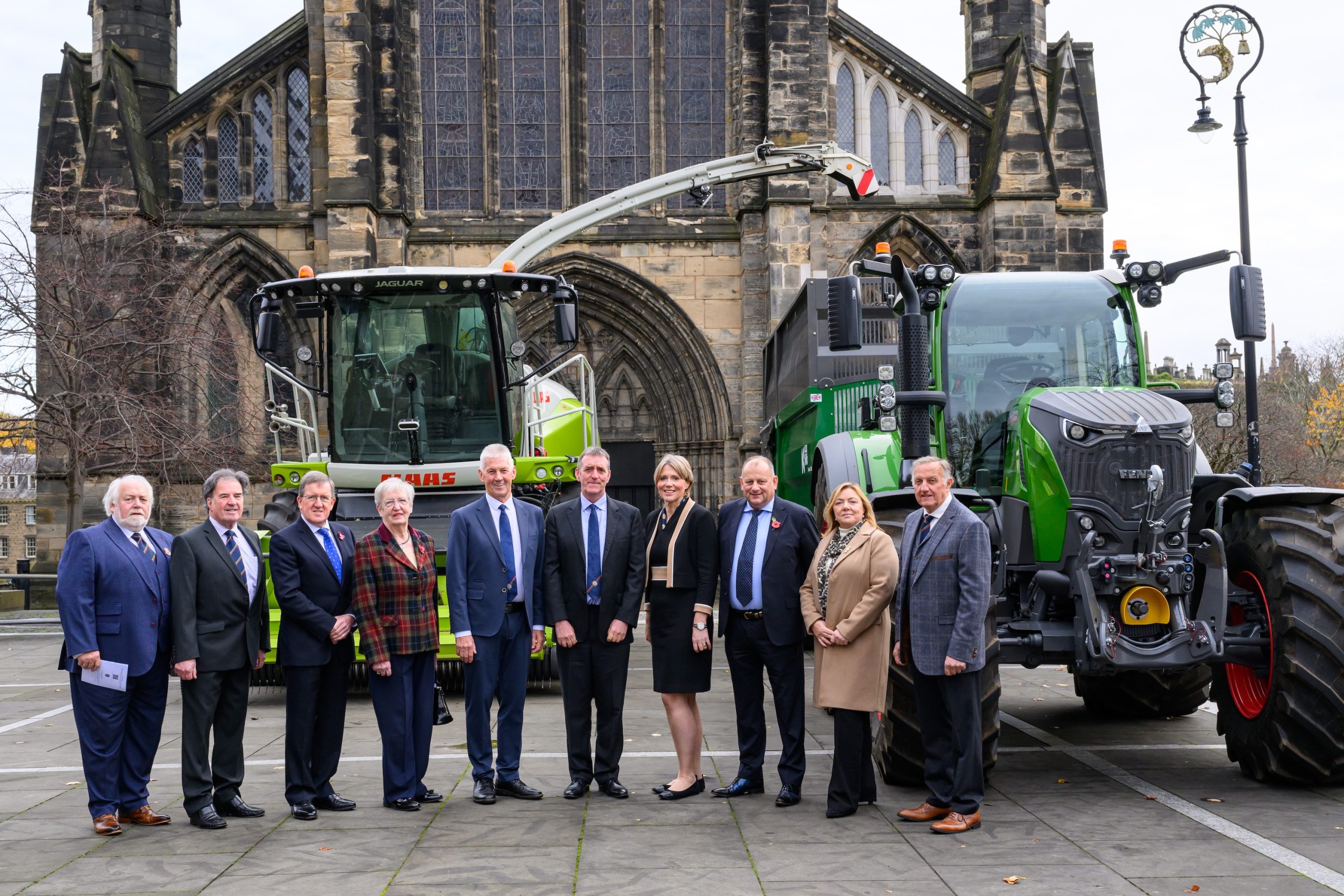Changes Needed to the Structure of Agricultural Shows to Secure Future
Hosted by: Katharine Hay, Rural Correspondent, The Scotsman
Panel:
- David Tennant, Head of Royal Highland Show
- Martin Dare, Organiser, AgriScot
- Lucy Mitchell, Project Manager, Black Isle Show
- Alix Ritchie, Programme Director, Farmstrong
- Marla Calico, President & CEO at International Association of Fairs and Expositions
The lifeline that agriculture shows bring to the farming community means their future must be secured, but changes need to be made to encourage younger generations to keep them going, industry leaders have said.
Whether they are on an international, national, or local scale, agriculture shows provide farmers the opportunity to connect with others who work in the farming industry, which can often be a solitary lifestyle.
They also mark a date in the calendar where those working on farms can get away for a day or two, and have a break from the day-to-day challenges of managing crops and animals.
The events also help bridge a disconnect between urban and rural, and establish a better understanding of where food comes from, and the work and cost that goes into producing it.
But there needs to be a focus on how the boards that manage these shows are structured to reflect the changes, interests and diversity of younger generations.
These comments were made by industry experts at a roundtable hosted by The Scotsman and RHASS ( Royal Highland and Agricultural Society of Scotland), at the Royal Highland Show
One of the speakers was Lucy Mitchell, Project Manager for the Black Isle Show, which is Scotland’s second largest agriculture show after The Royal Highland Show.
She said the traditional life of a farmer and their connection to local shows is changing, and that needs to be reflected in the events themselves.
Ms Mitchell, who has been awarded a Churchill Fellowship to go around the world and see shows and look at how they engage with the public, said: “Stereotypically, the way our agriculture industry has been set up is perhaps where we have a downfall because times have changed.
“ In the past, you would go to Young Farmers events, likely meet someone you would marry. You would then be too busy with that life, then at an older stage you’d maybe come back into agriculture for events.
“I think that’s what happened in the past, but that’s all changing, people aren’t going with the traditional way of life, so I think there’s a gap here that we need to tap into.
“I think a lot of young people who go to agriculture events also go because their parents go, which is great, but it would be useful for the industry to try and find a way to get people outwith the industry.”
One aspect of structural change discussed at the roundtable centred on volunteers, which are heavily relied on for running shows.
Organisers of the RHS said there are 50 permanent staff members, but the event expands to a team of over 1000 people, including additional staff and contractors, as well as volunteers, including Directors, Stewards, and Judges to make it happen.
Ms Mitchell said: “We need to make sure the volunteer process is inclusive and accessible because the agriculture industry can be quite closed.
“I know some volunteers have to give a huge amount of time. Could we adapt some of the roles to positions that aren’t as time-consuming. Also, we need to make sure the information on how to become a volunteer reaches others who aren’t necessarily involved in the agriculture industry.”
She said changing board structures behind events is also key.
“When I was board chair of the Scottish Association of Young Farmers we recognised that you were getting elected into position because your face was well-known, it wasn’t necessarily because you were right for that position. So we went through a process of changing our board structure completely.”
David Tennant, Head of Show for the RHS, said keeping up with replacing volunteers is key, but bringing in new ones is becoming increasingly difficult.
“We need to find ways to stay relevant to the way things are changing and to keep new, young people involved, because this is one of the increasing challenges we are facing when it comes to putting on shows.”
Financing agriculture shows is another challenge the future of these events face.
Martin Dare, of AgriScot, an agricultural trade business event servicing Scotland, said the cost of putting on agriculture events has escalated dramatically.
“Income streams have decreased, and there is huge pressure to keep these shows going,” he said.
Mr Dare said machinery businesses at the RHS talked about a 35 percent drop in their sales at this year’s event.
“That’s potentially a large chunk of marketing budget that’s going to come out so that’s worrying,” he said.
“People are buying and selling things in different ways, so being able to adapt and change in ways we haven’t considered is going to be fundamental to the survival of shows.”
He said teams behind agriculture shows have a job to make sure organisations and companies sponsoring and supporting these events continue to recognise them as important.
“Companies supporting the exhibitors are the lifeblood of these events, so we have to keep them engaged,” he said.
Marla Calico, Chief Executive of the International Association of Fairs and Expositions, a trade association that represents 1,035 agriculture shows across the globe, said survival is all about relevance, and knowing your community.
“To survive, to face the challenges of inflation, it’s important to stay relevant so that sponsors want to be there for the exposure,” she said.
“For shows it also comes down to you having to assess your own community.
“You have to pay attention to the change in demographics and pay attention to younger people, who suddenly during Covid, for example, had the option to work remotely, and suddenly realised rural life was much better and for their children. But how do we find them, and how do we connect them?
“You must pay attention to what is your community.
“Shows change lives, for the better, so long must they continue.”
Alix Ritchie, of Farmstrong Scotland, a wellbeing programme for the farming and crofting sector, said the future of shows is paramount to the mental wellbeing of those in the agriculture sector and rural communities.
“People forget shows keep people engaged all year round, and connect people in rural communities,” she said.
“Volunteering, for example, is not only good for wellbeing, but it means you meet people in your local area, and you go to meetings throughout the winter, which can bring long, dark nights.
“Show committees need to make sure that getting involved is accessible as improving diversity will improve the shows which continue to support the wellbeing of farmers, crofters and the wider rural community.”

 Login
Login Login
Login



